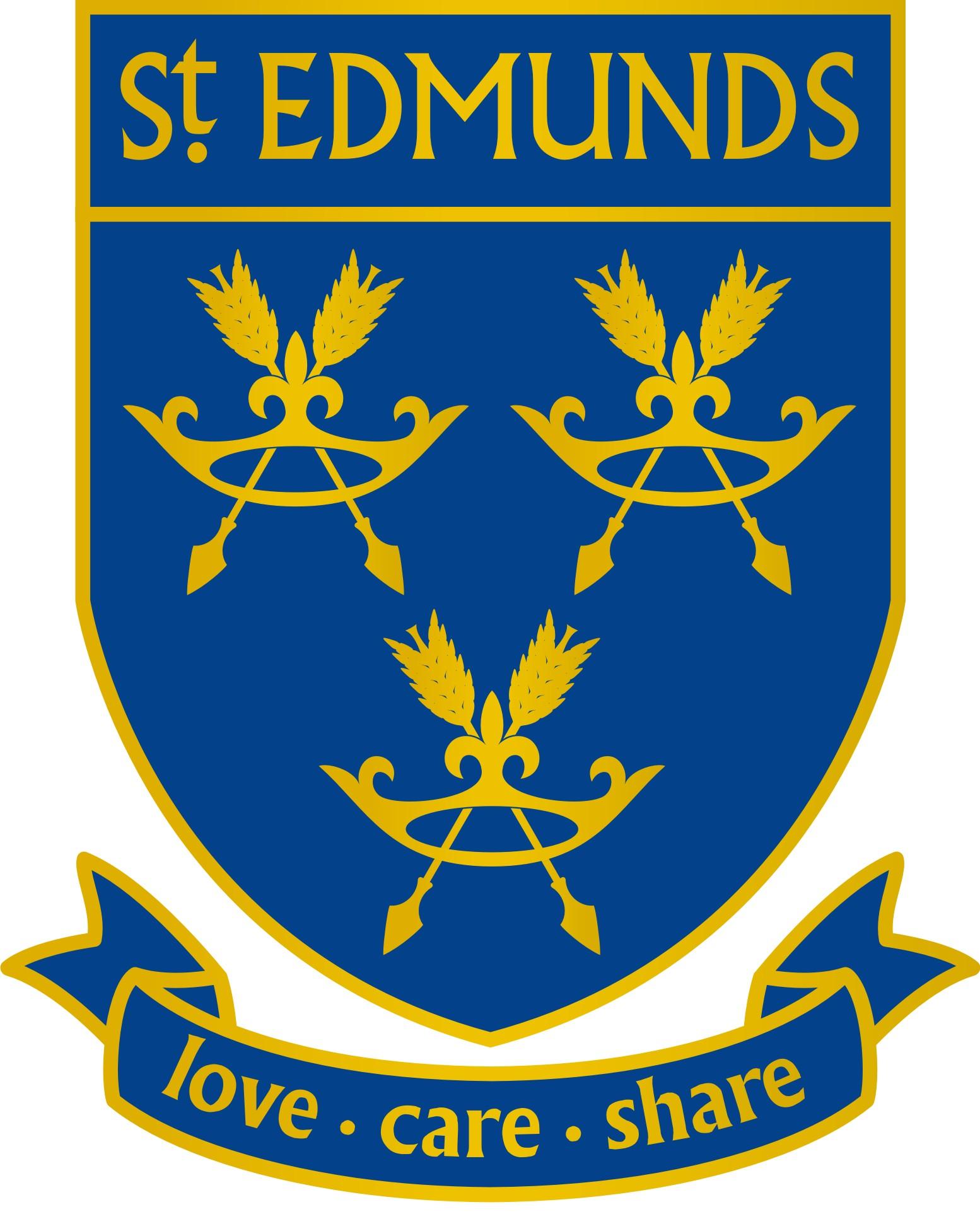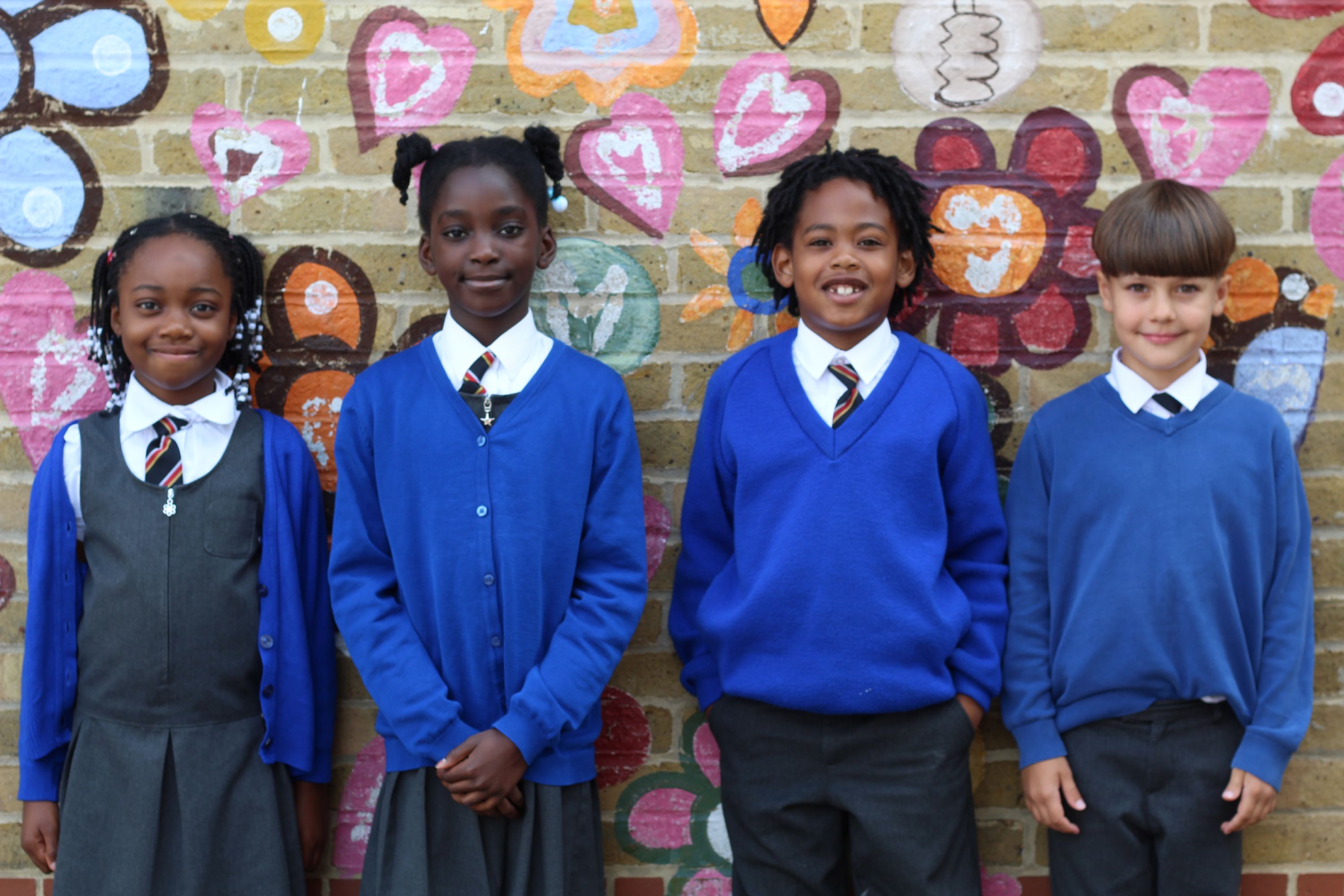Year 3
Welcome to Year 3
Welcome to Year 3. In our classes we provide a safe and fun learning environment for the children thrive and succeed. We encourage the student to work hard and develop independence in their learning and self-esteem.
If you have any queries or concerns please email the office, and they will pass it onto us.
Times Table Rockstars Login
TTRS will ask for a school name or postcode before your child can log in. Please enter our postcode N9 7HJ.
Year Group Team
Mr Harding
Miss Temurci
Mrs Edgar
Mrs Freitas
Mrs Fah-Bundeh
PE
Your children have PE on Wednesday afternoons.
They must wear their PE kit to school on these days.
For the time being, PE activities are taking place outside.
We are unable to use water fountains, please make sure your child brings a named water bottle to school each day.
Children must wear a plain white t-shirt, a plain navy-blue tracksuit and plain white or black trainers or plimsolls.
They must not wear earrings in PE lessons, if your child is unable to remove earrings independently, please make sure they do not come into school wearing earrings
Homework / Home Reading
Your child’s will be set homework on Google Classroom. This homework will be set on a Friday, and it will need to be completed by Wednesday.
The children can use the Word document and type their homework. We are encouraging children to handwrite their work and to upload a photograph. This will help us to support them with handwriting, spelling and grammar.
Your child will also be set an activity on MyMaths each week.
Your child has already been given log in details for both websites and should have been accessing them regularly. These passwords are the same that were used in Year 2. If you need usernames or passwords for either site, please email the school office and let us know (School@st-edmunds.enfield.sch.uk)
Your child must bring their book bag to school on Tuesday.
Your child’s new book for the week will be sent home on Thursdays.
Your child should be reading for at least 20 minutes this day. This helps your child vocabulary and understanding. We understand this can be hard with our busy lives, but your child can read to you whilst you are cooking dinner or doing the dishes. Or they can read to their siblings, the possibilities are endless.
When reading with your child, remember we are supporting children to develop their understanding.
Questions, questions, questions!
Here Is a link to help you come up with some questions when reading with your child
https://childrenslibrarylady.com/comprehension-questions-successful-reading/
What are Year 3 learning?
Maths
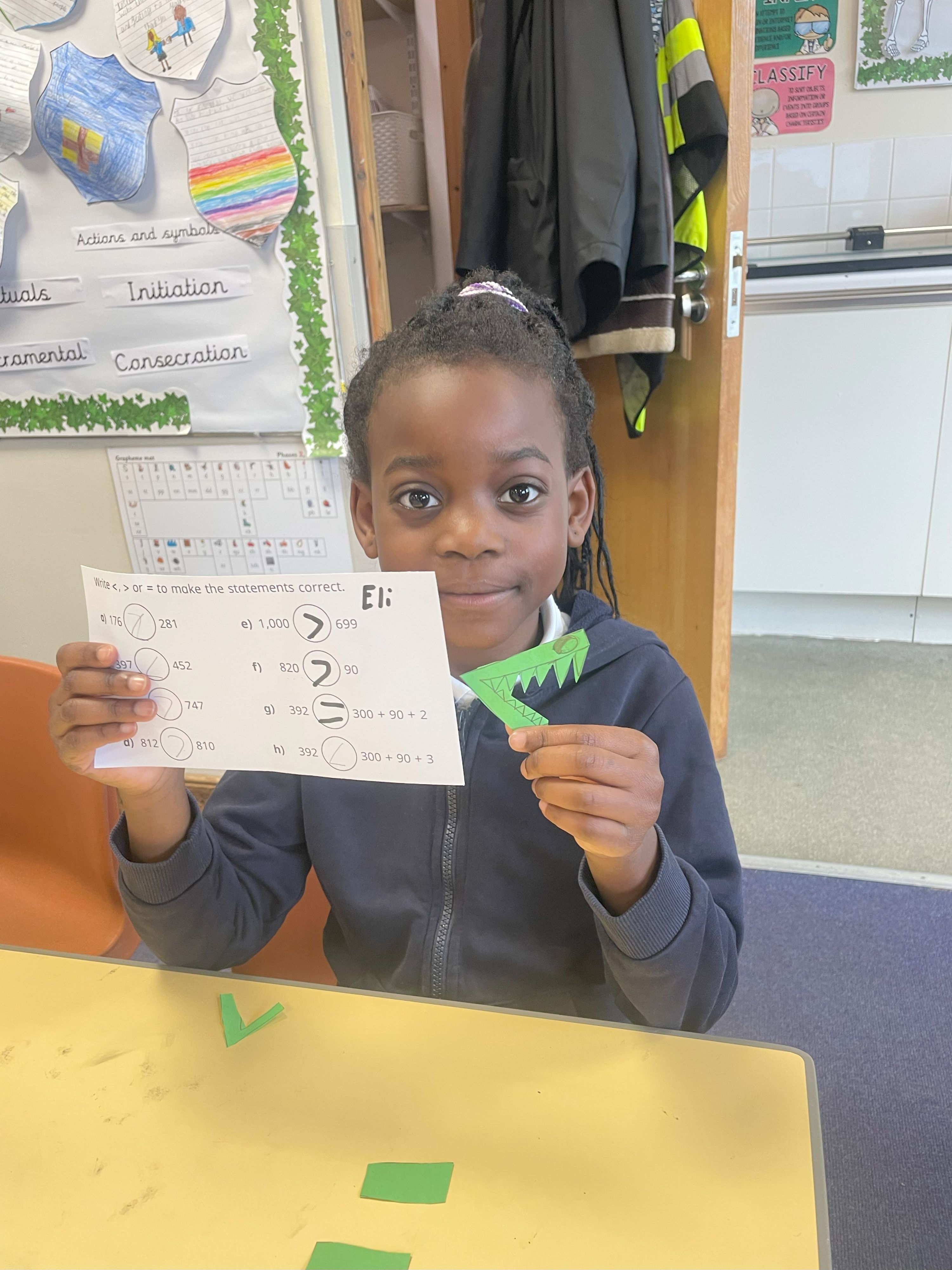
![]() In Maths, we have been focusing on place value. We have started to partition and represent three digit numbers.
In Maths, we have been focusing on place value. We have started to partition and represent three digit numbers.
English
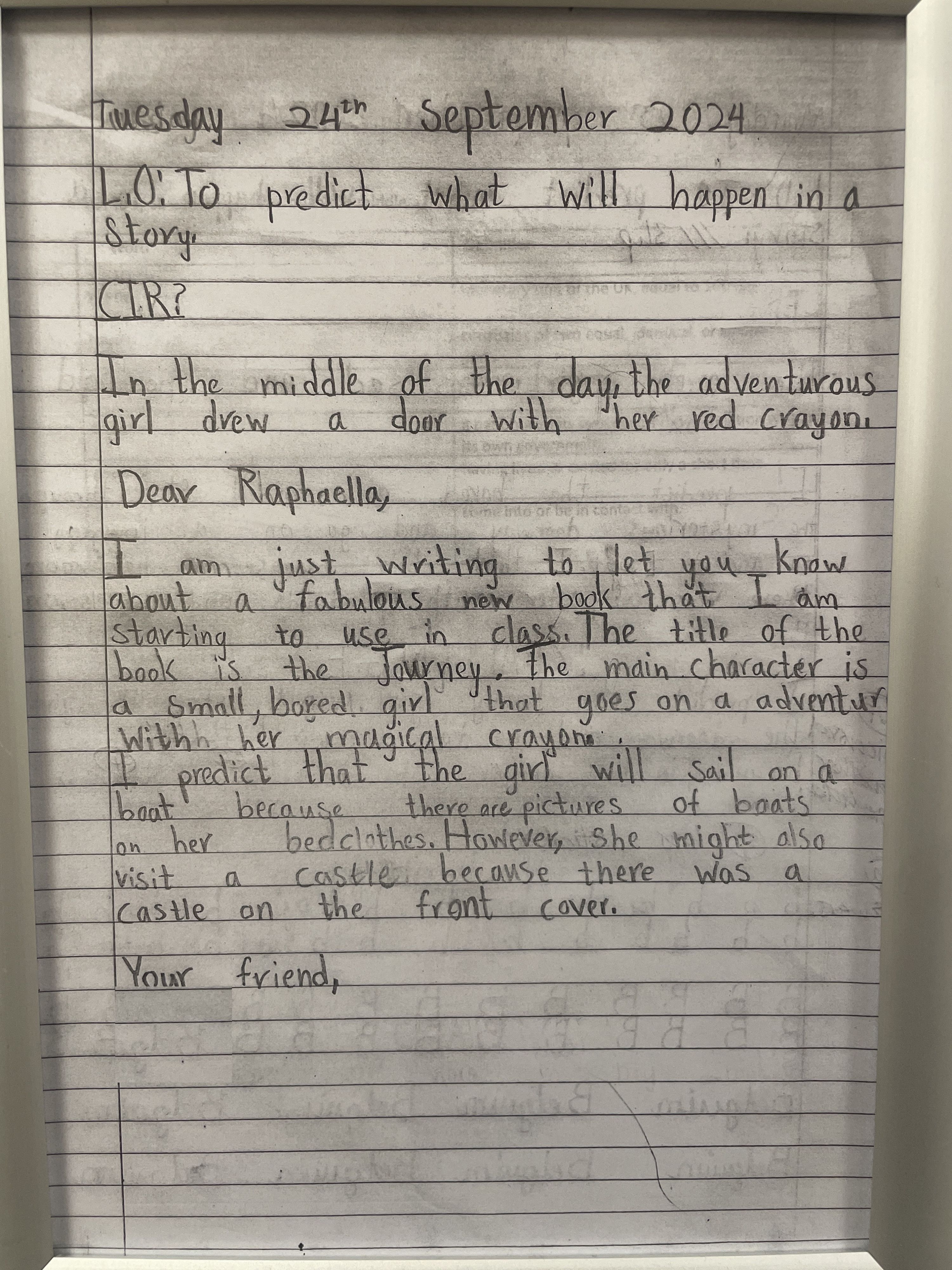
In English, we started a new book called ‘Journey’ by Aaron Becker. We have been using inferences to make predictions about the story and write a letter to a friend.
RE
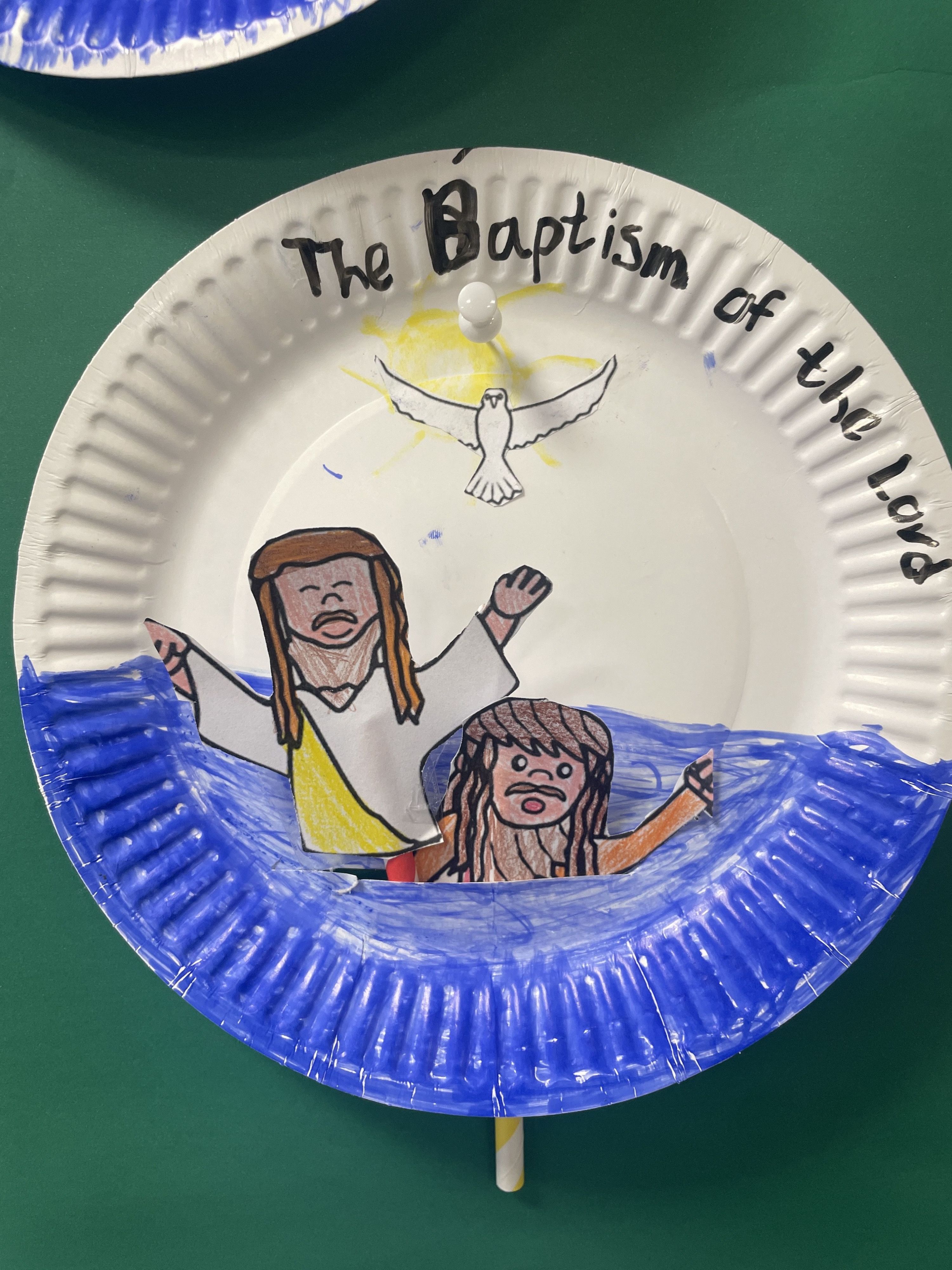
In RE, we have been learning about the words, actions and symbols used during the Mass of Eucharist. We have visited the Church and identified all the different symbols, describing what they are and why we need them.
Topic
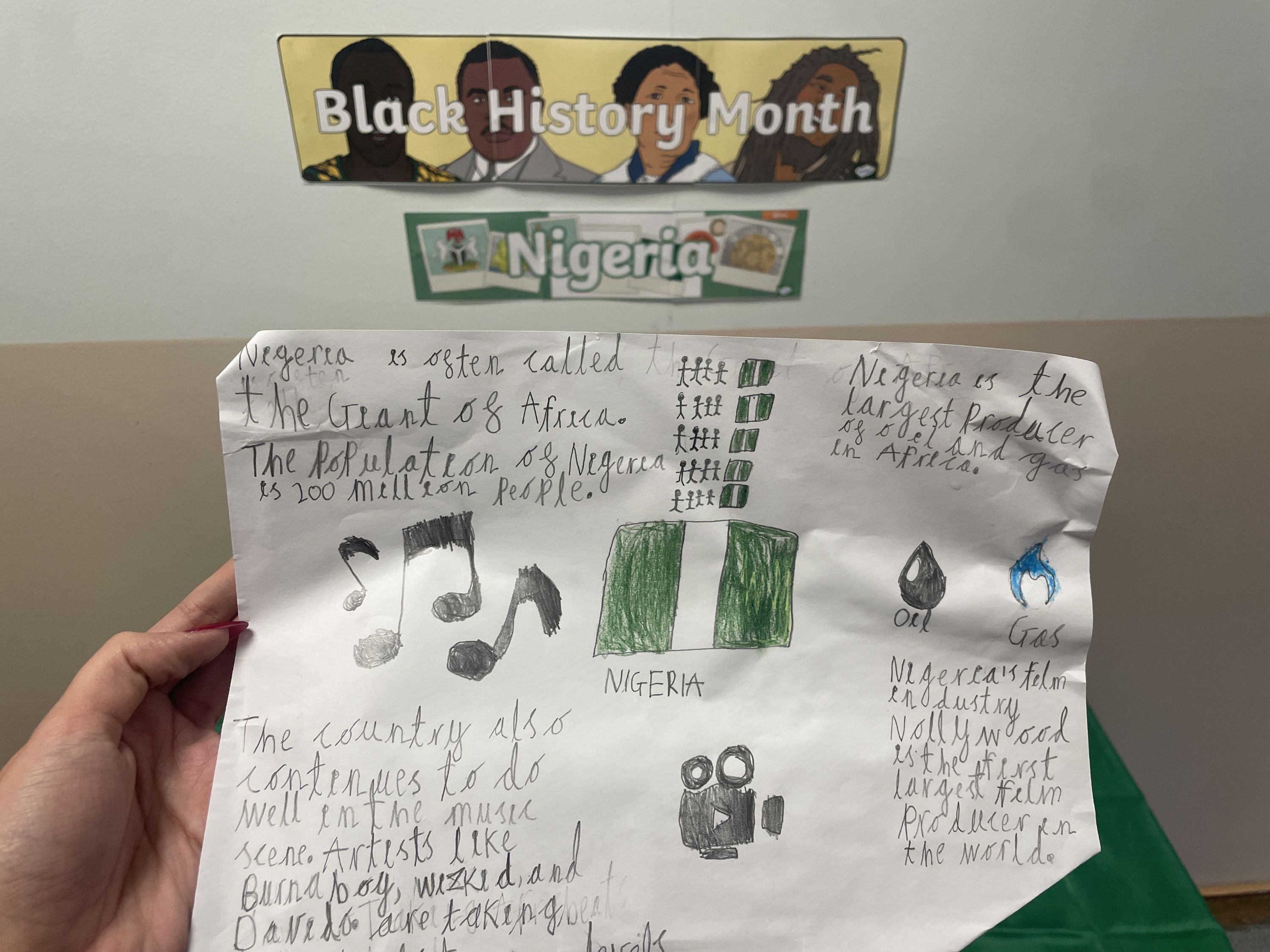
In History, we have been learning about Ancient Egypt! The children have enjoyed getting to know more about Tutankhamen. In Geography, we are focussing on Rivers and understanding how a river gets its water.
Science
In science, we are using our science skills to learn about our human body; our diet and skeletons!
Computing
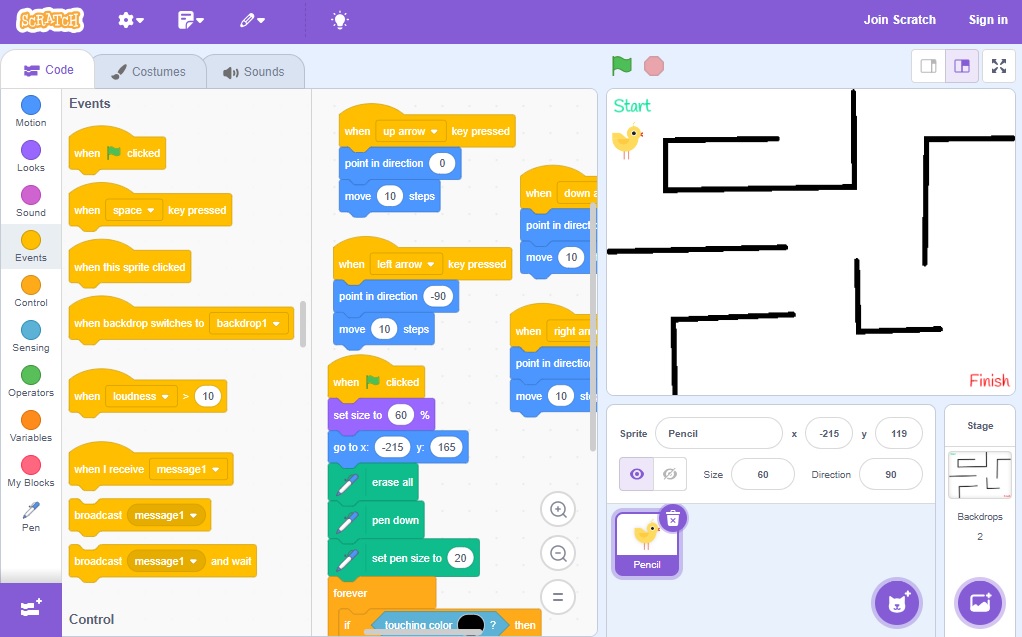
We have used the 'pen' tools in Scratch and understand the importance of debugging.
Other news
We are preparing for our Harvest assembly and can’t wait for you to join us in the celebration!
Aut 1
English
During our English lessons your child will be learning the features and styles of different genres of writing alongside daily reinforcement of good spelling, punctuation and grammar.
Children learn best and make the most progress in writing when tasks are purposeful or make links with children’s own experiences.
Pupils learn the features of three different text types, fiction, Non-Fiction and Poetry.
The genres we cover in Year 3 are:
Myths, recounts, non-chronological reports, adventure stories, performance poetry, and instructions.
Checking and Editing
We are encouraging children to edit and improve their writing independently. As they are now in KS2, we are hoping to develop independent learners! Children have been given purple pens at school. They use these pens to go back over their work and make changes to their punctuation and spellings. Please encourage your child to read back and check any work they are doing at home too!
Spelling
Children will have to learn 10 spellings each week. We look at the different rules and patterns of these words to help children understand the spellings. It is important for children not just to learn how to spell the word but to learn its meaning and if it can be used in a variety of contexts. Children will write a sentence using each of the 10 spellings.
Google-‘Year 3 and 4 Common Exception Words’
Speaking and Listening
We want your children to be confident speakers and good listeners. These are essential skills. We encourage your children to speak loudly and clearly using full sentences. We encourage children to be active listeners – “ What did your partner say?”
Reading
We want your child to love reading and to read for pleasure! In order for children to develop a positive relationship with books it is really beneficial for them to see adults reading for enjoyment or discussing books that they love!
Children have opportunities to read daily. This may be done independently, as part of a group or a whole class session.
During ‘Guided Reading” sessions pupils read with their teacher. This is an opportunity for teachers to hear pupils reading but more importantly this is a time when teachers will teach reading skills and develop pupils comprehension.
Children read their ‘School Reading Book’ at least once every fortnight, with a member of the Year 3 team.
We also have a ‘Class Read’ which is selected based on the children’s interests and it’s interesting vocabulary.
When reading with your child at home you can help to develop their understanding and comprehension skills by talking about the book and asking questions.
Also share your own thoughts and opinions with your child and encourage them to give their opinion with a reason!
Maths
All pupils have a daily Maths lesson.
Over the course of the year children will be taught the following units:
Number – the 4 operations (X, ÷, +, -)
Place value
Fractions
Measurement
Shape
Statistics
Many of these are revisited and built on several times throughout the year.
These are taught with a real life context and a focus on practical activities.
We encourage children to explain their thinking and their understanding- using full sentences!
Key Questions:
How do you know?
Can you prove it?
Can you do that in a different way?
Can you draw it?
Can you teach me?
Times Tables
There is a strong emphasis on children learning their times tables.
By the end of year 3, children should know their 2, 3, 4, 5, 8 and 10 times tables. Please practise these with your children.
Children learn that division is in the inverse of multiplication.
